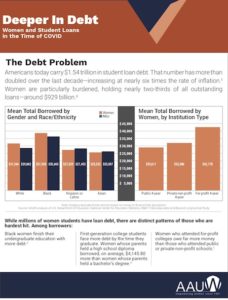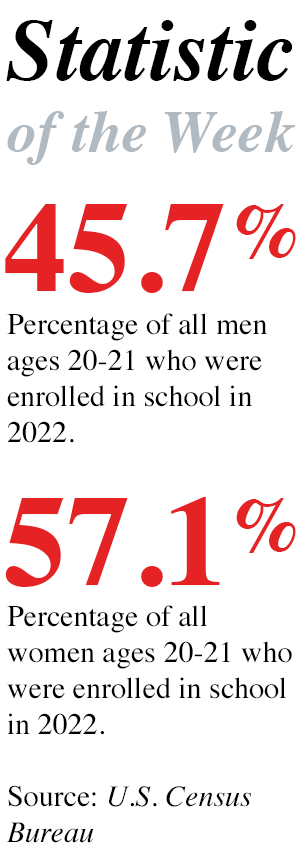How Will the Economic Crisis Due to the Pandemic Impact Women’s Student Loan Debt?
Posted on May 27, 2020 | Comments 0
 The COVID-19 crisis has not only posed a major health crisis for the nation but is bound to have serious and long-lasting economic effects. A new study from the American Association of University Women finds that the COVID pandemic will exacerbate the student debt crisis among women.
The COVID-19 crisis has not only posed a major health crisis for the nation but is bound to have serious and long-lasting economic effects. A new study from the American Association of University Women finds that the COVID pandemic will exacerbate the student debt crisis among women.
Prior to the pandemic, research had shown that Americans had accumulated a whopping $1.54 trillion in student loan debt. Of this total, $929 billion was held by women.
Record-high unemployment, the loss of supplementary income and inadequate benefits will make it harder for recent graduates — and for women in particular — to pay back their student loans, according to the report. Recent graduates are finding themselves facing the worst unemployment crisis since the Great Depression — and women are faring worse than men. In the early weeks of the coronavirus crisis, women filed nearly 59 percent of unemployment claims. Prior to the public health crisis, the unemployment rate for women was below the rate for men. The latest data shows that the unemployment rate for women was 15.7 percent in April 2020, compared to 13.7 percent for men.
More than a third of women reported that their undergraduate student loan debt forced them to delay buying a home; 21.7 percent said it caused them to delay marriage; and 22.6 percent stated it led them to delay having children. The economic crisis in the wake of the pandemic is sure to raise all of these percentages.
“The Class of 2020 is facing an untenable situation. They are graduating to record unemployment, a student debt crisis and the gender pay gap,” said Kim Churches, AAUW’s chief executive officer. “Even in a strong economy, student debt hurts the ability of women to buy homes, start a family or save for retirement. Unless we take decisive action, we’re crushing the future of a generation of women.”
The full AAUW report, Deeper in Debt: Women and Student Loans in the Time of COVID, may be downloaded by clicking here.
Filed Under: Research/Study








